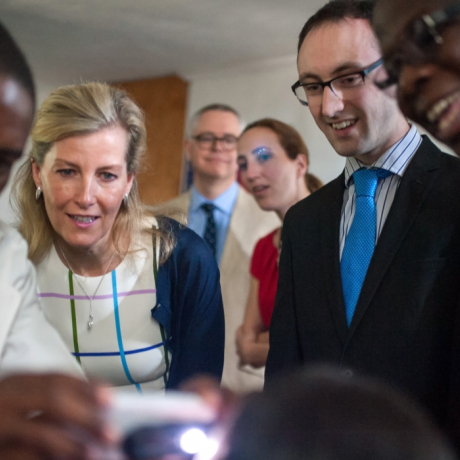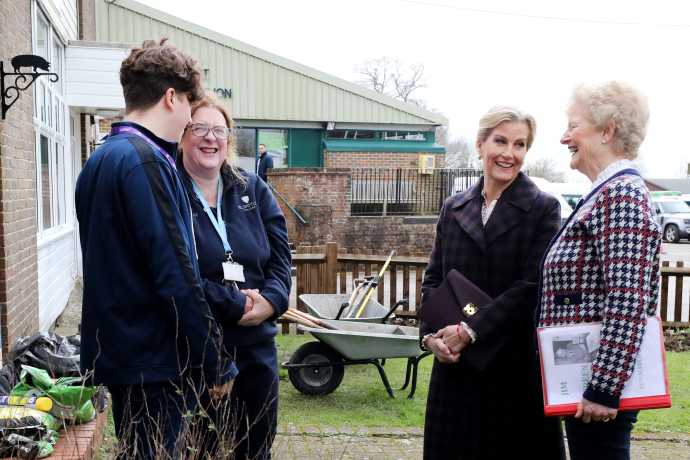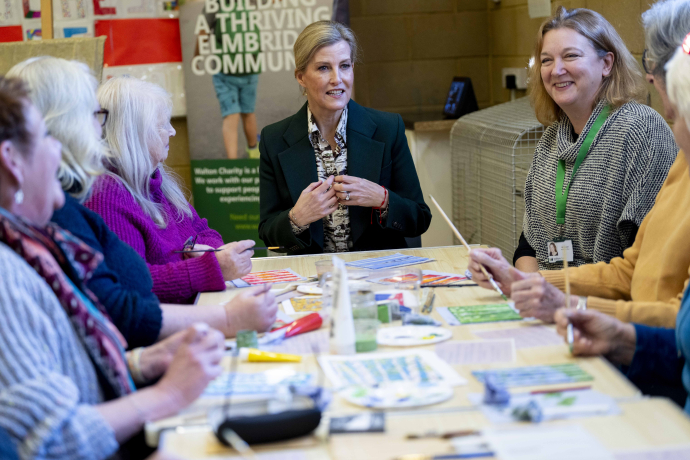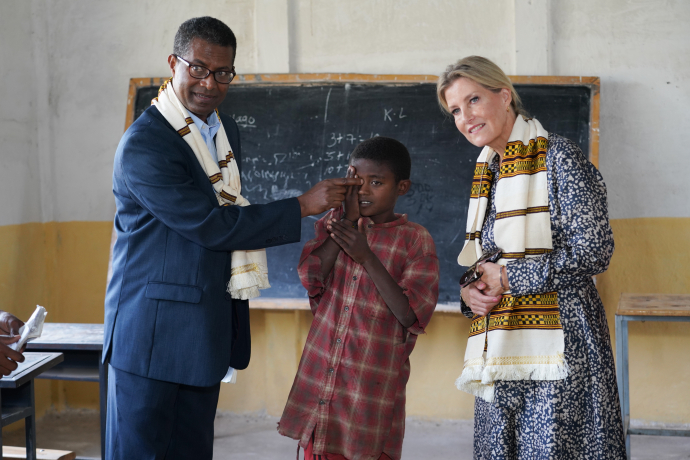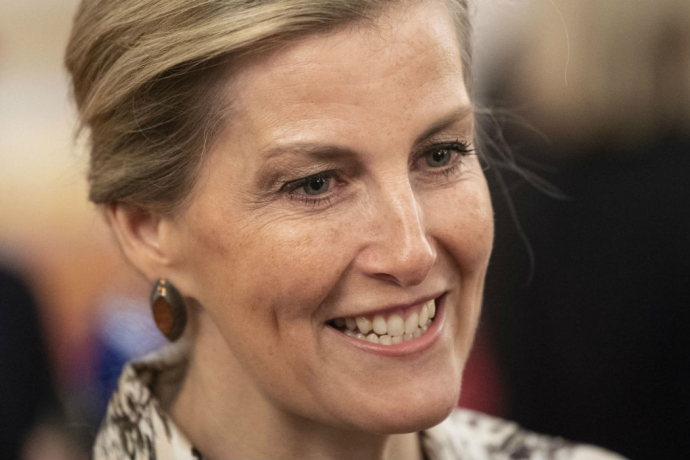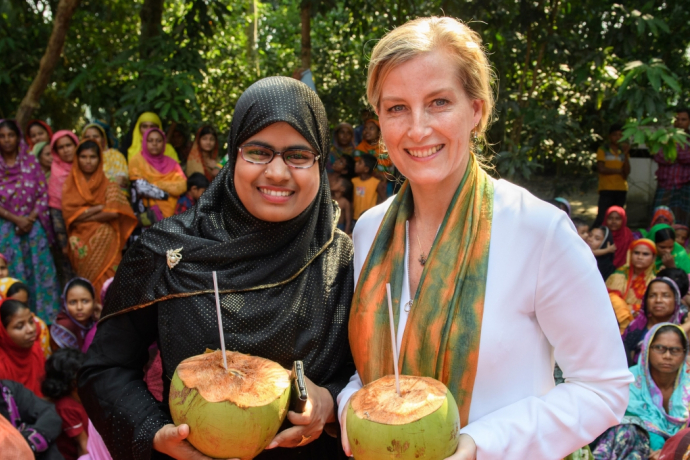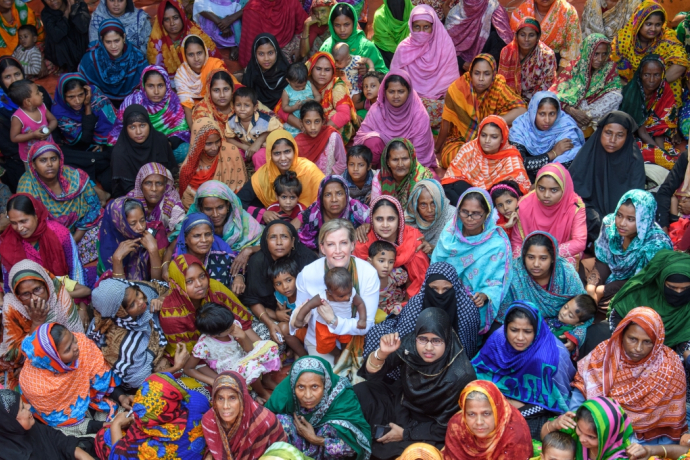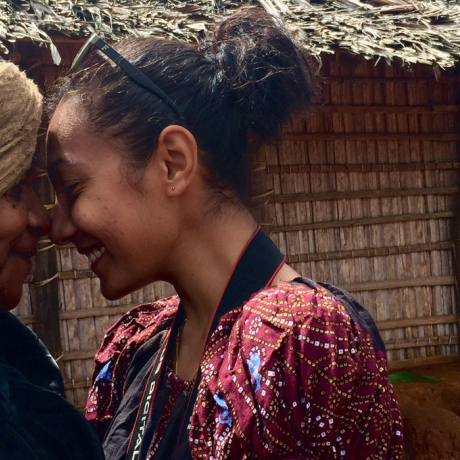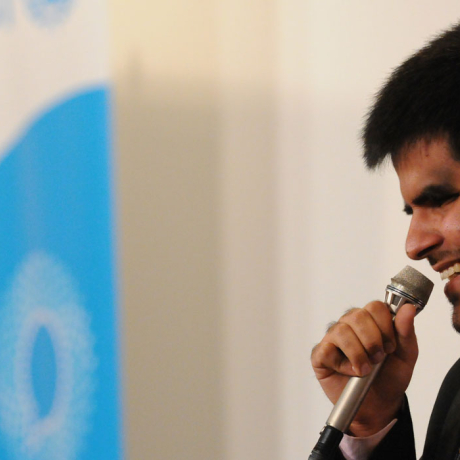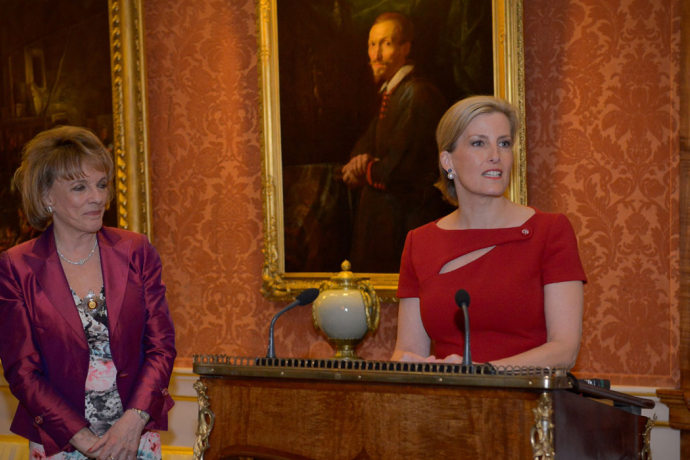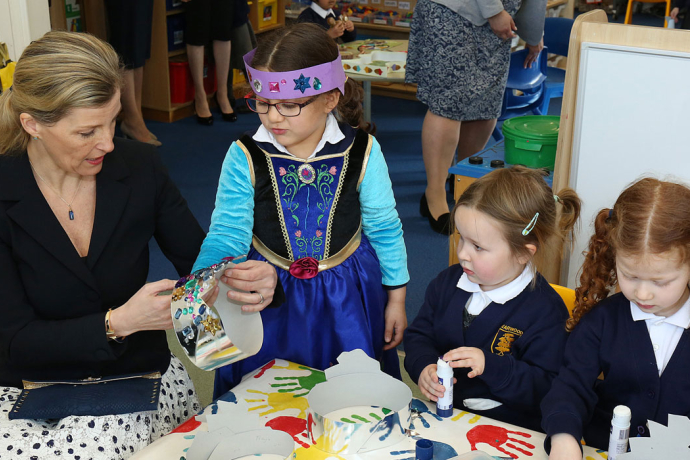For most of us an eyelash occasionally rubbing against your eye is a mild and momentary irritation. But try to imagine if all of your eyelashes were constantly and painfully rubbing against your eye, scratching and scraping the surface of your eyeball with every single blink and progressively damaging your cornea until you eventually went blind. This is the shocking reality for those who live with untreated advanced trachoma. The disease is the world's leading infectious cause of blindness and is responsible for the visual impairment of an estimated 2.2 million people, of whom 1.2 million are irreversibly blind.
Yet blinding trachoma is preventable, treatable at a low cost, and can be eliminated.
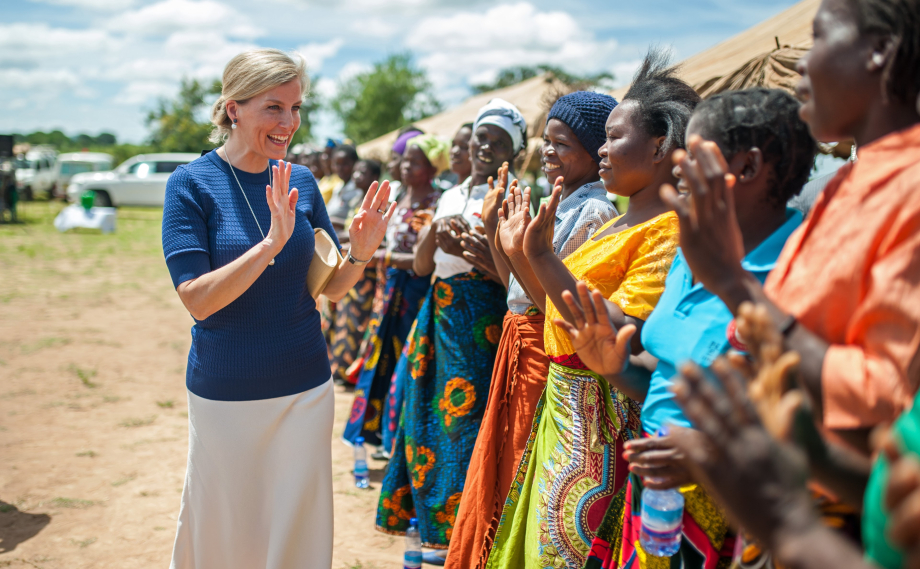
In March I had the opportunity to travel to Malawi, as Vice-Patron of The Queen Elizabeth Diamond Jubilee Trust. Malawi is one of the poorest countries in the world and faces many health challenges. When the Trust's initiative to eliminate blinding trachoma started in 2014, eight million people in the country were at risk from the enduring cycle of poverty that trachoma brings - the loss of independence, the inability to work and care for their families.
Now, an historic milestone has almost been reached; Malawi is on track to eliminate the disease as a public health problem by the end of next year. Very soon no one in the country need lose their sight, or their livelihoods, as a result of blinding trachoma. This incredible achievement has not come easily, and has required the steadfast leadership and backing of the country's Ministry of Health; the engagement of local communities; and a strong collaborative effort involving many organisations and partners supported by The Queen Elizabeth Diamond Jubilee Trust.
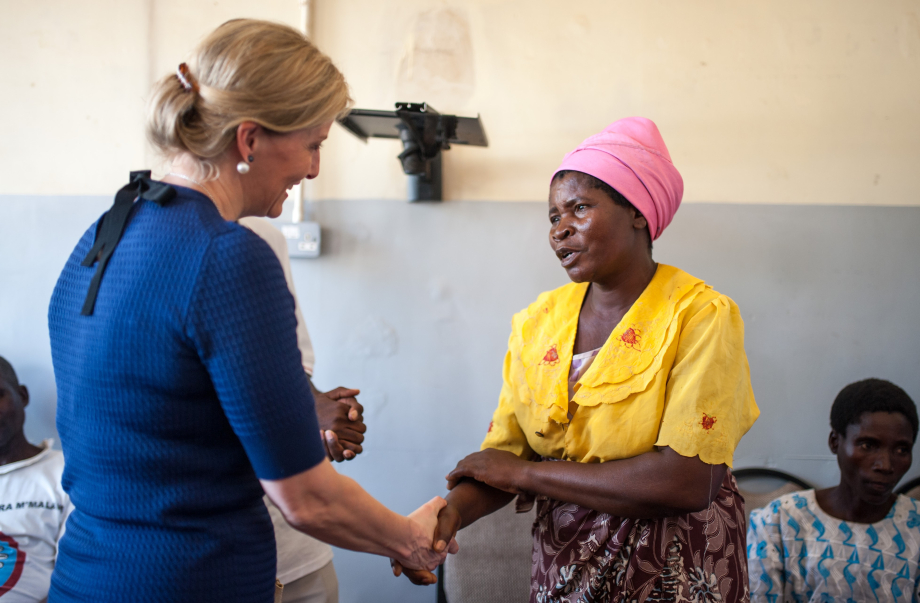
During my visit I travelled to Kasungu, a few hours' drive north of the capital city Lilongwe. At the District Hospital I met a woman with advanced trachoma who recently had surgery to correct her turning-in eye lashes, relieving her of extreme and incessant pain and, wonderfully, restoring her sight. She told me that she had suffered from trachoma since 1958 and of her joy when she saw her Grandchildren for the first time. At nearby Chisuwe Primary School, I met a young girl called Safira, who was giving a presentation to her classmates about how they can reduce the spread of trachoma, something that had affected most of their families, by regularly washing their faces and hands.
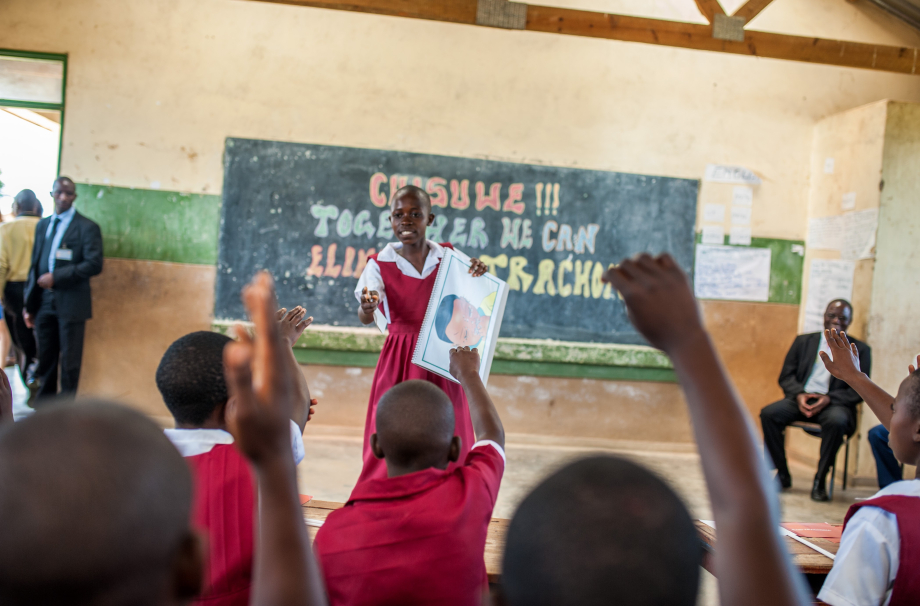
In the neighbouring village of Salipira I was shown a pit latrine, built and maintained by the villagers and now replicated across the District. These improvements in sanitation have significantly reduced the number of flies and, together with better hygiene and carefully dosed antibiotics, means the Kasungu District will soon have eliminated the disease. I also met a family living in the village where the Grandmother told me how thankful she was her infant Grandson would not have to grow up in the shadow of trachoma in the same way her daughter had.
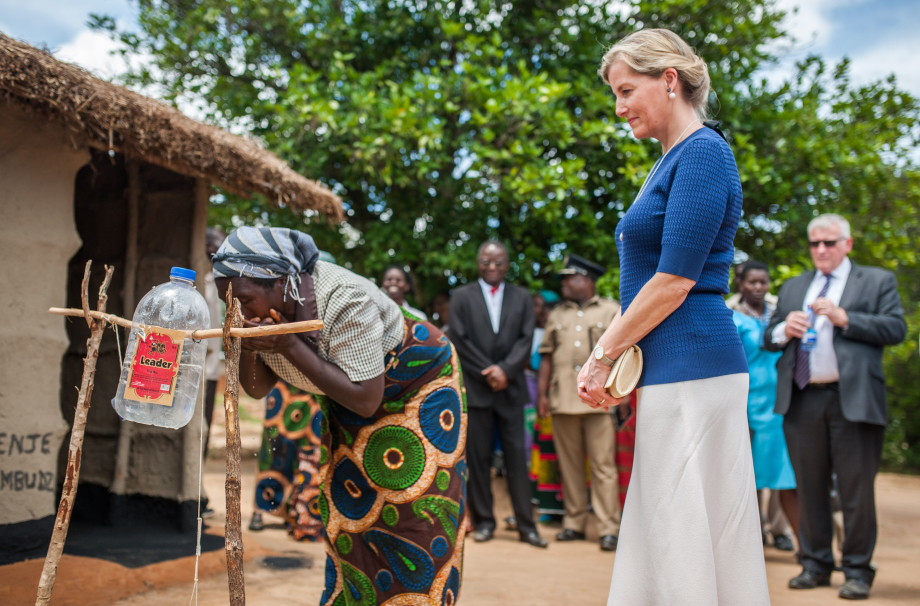
Malawi has shown what can be achieved. Blinding trachoma is endemic in 54 countries across the world, yet global elimination is well within our grasp through a proven strategy of better sanitation and hygiene, antibiotics and simple, inexpensive surgery. But the organisations battling trachoma need help to complete this critical work.
We know that global elimination is possible; Malawi is showing that. This week sees the 70th World Health Assembly being held in Geneva. What an extraordinary achievement it would be to end this terrible blinding disease everywhere.
To find out more about the organisations working to eliminate trachoma click here

